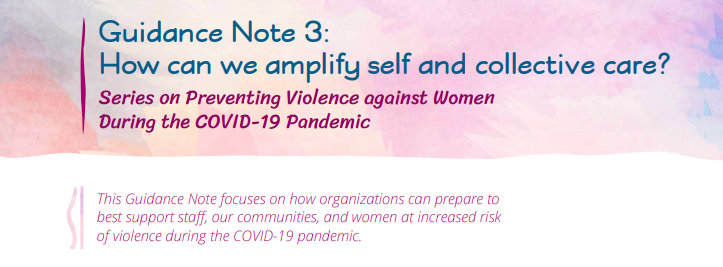Guidance Note 3: How Can VAW Prevention Programs Adapt? : Series on Preventing VAW During the COVID-19 Pandemic
The COVID-19 crisis is a destabilizing time, deepening social inequalities and increasing violence against women (VAW). This is also a moment of significant unpredictability and many are experiencing fear, anxiety, and anger as a normal response to these rapid changes. Certain groups are more vulnerable to pandemic-related hardships and consequences, including women, LGBTIQ people, people living with chronic illnesses and other disabilities, people reliant on daily wages,among others. Further, within the COVID-19 response, women providing essential services—from health care provision to cleaning to vendors in the market—are particularly impacted and at risk of violence. These vulnerabilities compromise our collective well-being, as individuals, organizations, and movements to prevent VAW. We recognize –and insist—on the importance of caring for ourselves and each other during COVID-19 as a political act that is integral to our social justice activism, resisting the patriarchal norms and other systemic oppressions that value certain people over others.
Views 814




